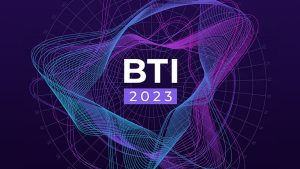
Rachel Eyres, Client Director – Energy and Utilities, Expleo
With just 18 months until the deadline for a smart meter in every UK home, Rachel Eyres makes the case for shared testing services, powered by automation. Indeed, Expleo’s new Smart Services offer can drive down the cost of assurance by up to 50%.
The clock is ticking for energy suppliers to meet the government’s 2020 deadline for a smart meter in every UK home – and the media are holding the stopwatch. Recently, the industry enjoyed a boost with news that the one millionth second-generation (SMETS2) smart meter had been connected. Indeed, as many as 20 meters are now being installed every minute of the day[1]. However, the energy press were also quick to report on the 17% annual drop in the total number of meter installations, despite the deadline looming ever closer[2].
The energy suppliers who are responsible for driving the roll-out of smart meters are advancing into a stiff breeze. Their high priority assignment is made all the more taxing by the level of change happening all around them. Suppliers must respond to a diverse range of parallel challenges such as the enrolment and adoption of SMETS1, consumers switching supply, upgrades to firmware versions, ever-increasing variety of SMETS2 devices, and new DCC and adapter releases. Nobody said this was easy.
What began as a technical and operational challenge has now grown into a test of change management. Finding a way to respond in an agile and efficient way to these competing demands has become business critical. The need to assure devices and new releases is therefore growing in step – but then so too is the complexity of the testing. For example, the DCC will be releasing new Comms Hub firmware 4 times per year. This alone will drive the need to assure changes quarterly.
Make space for innovation
This comes at a time when in-house teams are already stretched. Given that testing has moved from a competitive advantage to an overhead, the emergence of shared services and standardised processes provides a real opportunity to remove the need for non-core, repetitive testing. Put simply, these communal labs allow suppliers to offload some of the ‘boring operational stuff’, freeing them to focus on innovative products and services.
This matters. With supplier entrants offering eye-catching products to tempt away customers, incumbents must keep up or give way. Suppliers are also under pressure to reduce costs across the business in light of the price cap and its impact on profits. Innovation has become a necessity rather than a ‘nice to do’.
However, driving down operational costs can increase risk in terms of quality. Suppliers want to effectively deploy smart meters and change with a strong assurance that they will ‘go live’ without issues. Those suppliers that can get it right first time will move up the customer experience rankings, which are themselves a powerful marketing tool.
Outsourced testing gives suppliers one less thing to worry about. They can test the end-to-end change in their smart meter landscape on an ongoing basis without the stress of managing their own labs. Shared testing allows suppliers to reduce operational costs, despite the growing market complexity, by streamlining a process that they are all doing anyway in multiple places all over the country.
Time and cost savings
Automation, especially in areas such as regression testing, will accelerate the process further, reducing human error that can creep in when organisations ‘mark their own homework’. An independent quality assurance specialist can help ensure that smart meter programmes move to a steady state in a fast and safe way. By outsourcing repetitive tasks, the economies of scale will speed up delivery and drive down the cost of assurance – by as much as 60% and 50% respectively.
The media are often quick to paint a glum picture around smart meters. Yet, there is still time for good news stories to fill the column inches. After all, if suppliers can migrate their customers successfully to the DCC[NJ1], as part of the enrolment and adoption program, millions of people in the UK would regain their smart reading functionality. Getting SMETS2 right will drop many of the jigsaw pieces in place to enable a smart grid that will drive economic, environmental and social change.
Outsourcing quality assurance is just one step towards this smart energy future. Arguably, the 2020 deadline presents a false summit. A more pressing imperative is the need to improve smart operations – and therefore reduce expenditure, strengthen quality and improve the customer experience. The end of 2020 is no longer the destination, but rather a staging post on a much longer journey towards decarbonisation and a more flexible energy sector. That really would be headline news.
Find out more about how Expleo’s Smart Services can help you with your smart meter testing here.
[2] https://utilityweek.co.uk/smart-meter-installation-rate-drops-again-as-deadline-looms/
[NJ1]As part of the Enrolment and adoption program





